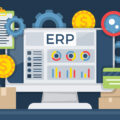Businesses are constantly striving to stay competitive by adopting solutions that are tailored to their specific needs. While off-the-shelf software packages may work for some, many organizations find that a custom software solution offers more value in terms of functionality, scalability, and adaptability. Custom software is designed specifically for a company’s unique requirements, ensuring that it addresses their particular challenges, workflows, and objectives.
But how many types of custom software are there? The answer is more nuanced than it might seem. Custom software can take various forms depending on the business needs it aims to fulfill. In this blog, we’ll explore the main types of custom software, providing insight into their unique characteristics and how they serve different business needs.
Bespoke Business Applications
Bespoke business applications, often referred to as “tailor-made” software, are specifically developed to meet the needs of a particular organization. These applications are designed from the ground up to solve specific business problems or streamline operations in a way that generic software cannot.
- Use Cases: A manufacturing company might need a custom application to track inventory, order management, and supply chain logistics. A financial services firm might require bespoke software to handle client portfolios, risk analysis, and reporting.
- Advantages: Custom-fit to the organization’s workflow, high scalability, integration with existing systems, and better control over security and features.
Examples:
- A customer relationship management (CRM) system tailored to the specific needs of a sales team.
- A project management tool built specifically for a company’s internal processes.
Enterprise Resource Planning (ERP) Systems
ERP software is designed to help large organizations manage and automate their core business processes, including finance, HR, manufacturing, supply chain, and customer service. Custom ERP systems are tailored to fit the specific operational needs and workflows of an organization.
- Use Cases: A multinational company with diverse operations in different regions may require an ERP system that integrates all its departments (sales, finance, operations, etc.) into one unified platform, while accounting for region-specific requirements such as tax laws or currency.
- Advantages: Streamlines operations across the entire business, provides real-time data for decision-making, increases operational efficiency, and is scalable as the company grows.
Examples:
- A retail company creating an ERP system to manage both online and physical store inventories.
- A construction company using a custom ERP system to manage project timelines, budgets, and resources.
Customer Relationship Management (CRM) Systems
While there are many off-the-shelf CRM solutions, custom CRM software can offer businesses an opportunity to build a system that’s tailored to their specific customer engagement, sales processes, and data management needs.
- Use Cases: A SaaS company may require a CRM that integrates customer usage data, subscription management, and personalized communications, whereas a B2B company might need CRM software that focuses more on lead generation, contract management, and account history.
- Advantages: Custom CRMs are designed to integrate seamlessly with other tools and processes in the organization, improving customer interactions, sales tracking, and analytics.
Examples:
- A custom CRM that integrates customer service tickets, sales team communications, and product usage data.
- A CRM system that provides a 360-degree view of customer interactions across multiple touchpoints (e.g., social media, email, in-person meetings).
E-Commerce Platforms
Custom e-commerce platforms are built to cater to the specific needs of online retailers who require more flexibility and control over their sales operations, product catalog management, and customer experience than generic e-commerce platforms can provide.
- Use Cases: A niche retailer selling customized products might need an e-commerce site that allows users to design and personalize items before purchase. A company selling digital products might require a system with secure digital delivery and subscription management.
- Advantages: Full control over the design and functionality of the store, enhanced user experience, better scalability, and the ability to integrate with other business systems such as inventory, accounting, and marketing.
Examples:
- An e-commerce platform with a custom checkout process, product personalization features, and subscription management tools.
- A marketplace platform with custom seller dashboards, payment processing, and rating/review systems.
Mobile Applications
Custom mobile applications are designed to provide a personalized experience for users on mobile devices. These apps can range from simple business tools to complex platforms for delivering specific services to customers.
- Use Cases: A healthcare provider might need a mobile app to provide telemedicine services, schedule appointments, and store medical records. A logistics company might need a mobile app for real-time tracking of shipments and communication with drivers.
- Advantages: Mobile apps can offer a seamless user experience, direct communication with customers, and access to data and services on the go.
Examples:
- A custom app for fitness tracking, tailored to a specific type of workout or user demographic.
- An app for a field service company that allows technicians to receive work orders, track time, and invoice customers from their mobile devices.
Business Intelligence (BI) and Data Analytics Software
Business intelligence and data analytics software is used by organizations to gather, analyze, and interpret data from various sources to aid in decision-making. Custom BI solutions can be created to meet the exact needs of a company, including data collection, integration, and visualization.
- Use Cases: A marketing agency might want a custom BI tool to track the effectiveness of multiple ad campaigns in real-time, while a healthcare provider might need a data analytics tool to track patient outcomes across different departments or practices.
- Advantages: Custom BI systems can be fine-tuned to focus on the most relevant data, produce real-time reports, and integrate with other business systems.
Examples:
- A custom dashboard for executives that aggregates data from sales, marketing, and finance to provide a comprehensive view of business performance.
- A custom tool for predictive analytics that forecasts customer behavior based on historical data.
Workflow and Task Automation Tools
Custom workflow and task automation software is developed to optimize and automate repetitive tasks within an organization, improving efficiency and reducing the potential for human error.
- Use Cases: A law firm might need custom software to automate the process of case management, document sharing, and billing. A marketing team could require an automation tool for managing content approval processes, social media scheduling, and email campaigns.
- Advantages: Saves time, reduces errors, improves productivity, and ensures consistency across tasks and processes.
Examples:
- A task automation tool that schedules and sends email newsletters to customers based on predefined triggers.
- A workflow management tool that automates the approval process for business documents.
Legacy System Modernization
As businesses grow and technology advances, legacy systems can become outdated and difficult to maintain. Custom software development for legacy system modernization involves updating or replacing older software to meet current needs, improve performance, and ensure compatibility with new technologies.
- Use Cases: A financial institution with an old transaction processing system may require custom software to modernize the interface, improve security, and integrate with newer financial technologies.
- Advantages: Legacy system modernization can result in improved performance, increased efficiency, and enhanced security features.
Examples:
- A financial institution modernizing a legacy accounting system to support cloud-based accounting and real-time reporting.
- A retail company replacing its outdated inventory management system with a more scalable, cloud-based solution.
Conclusion
Custom software solutions offer businesses the flexibility and adaptability they need to thrive in a competitive marketplace. The types of custom software available are as varied as the businesses that use them, ranging from bespoke business applications to specialized tools for data analytics, mobile apps, and workflow automation. By selecting the right custom software solution, organizations can not only address their immediate needs but also position themselves for future growth and success. Understanding the different types of custom software available is key to making the right choice for your business, whether you’re looking to enhance efficiency, improve customer experience, or scale your operations.





